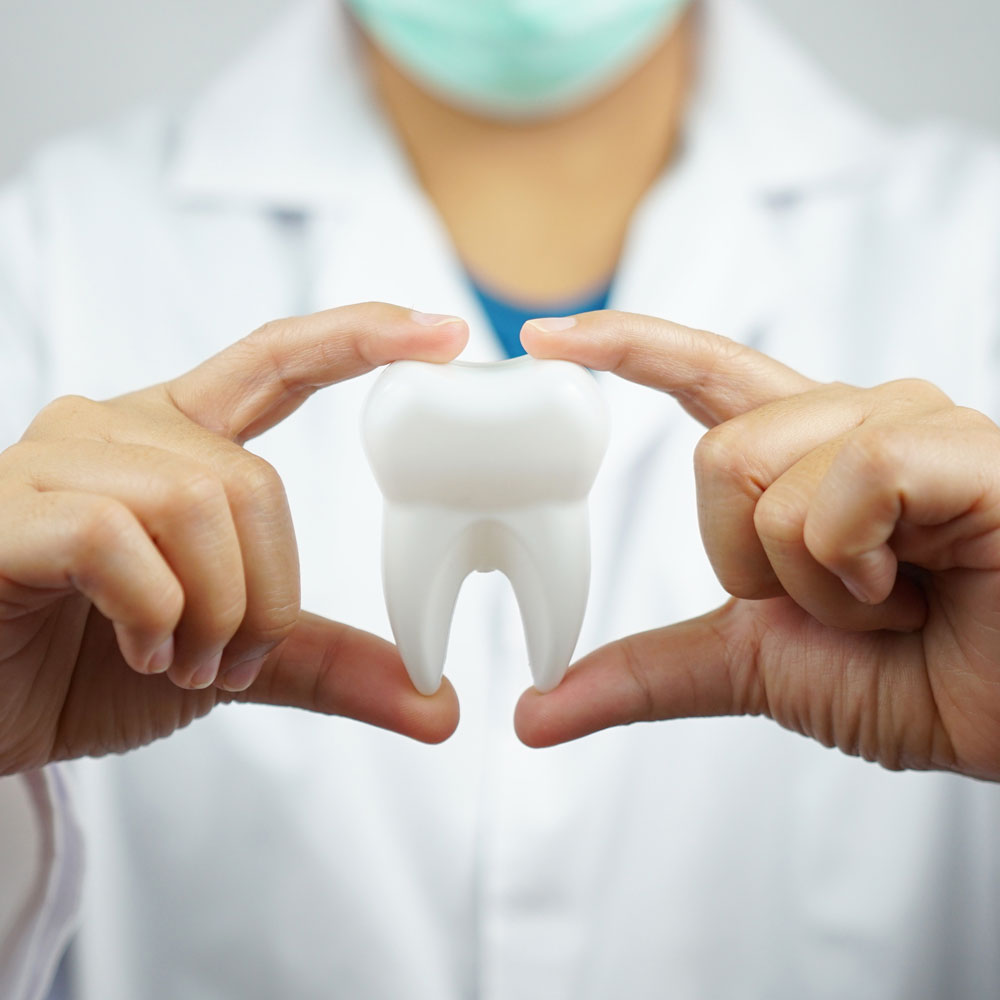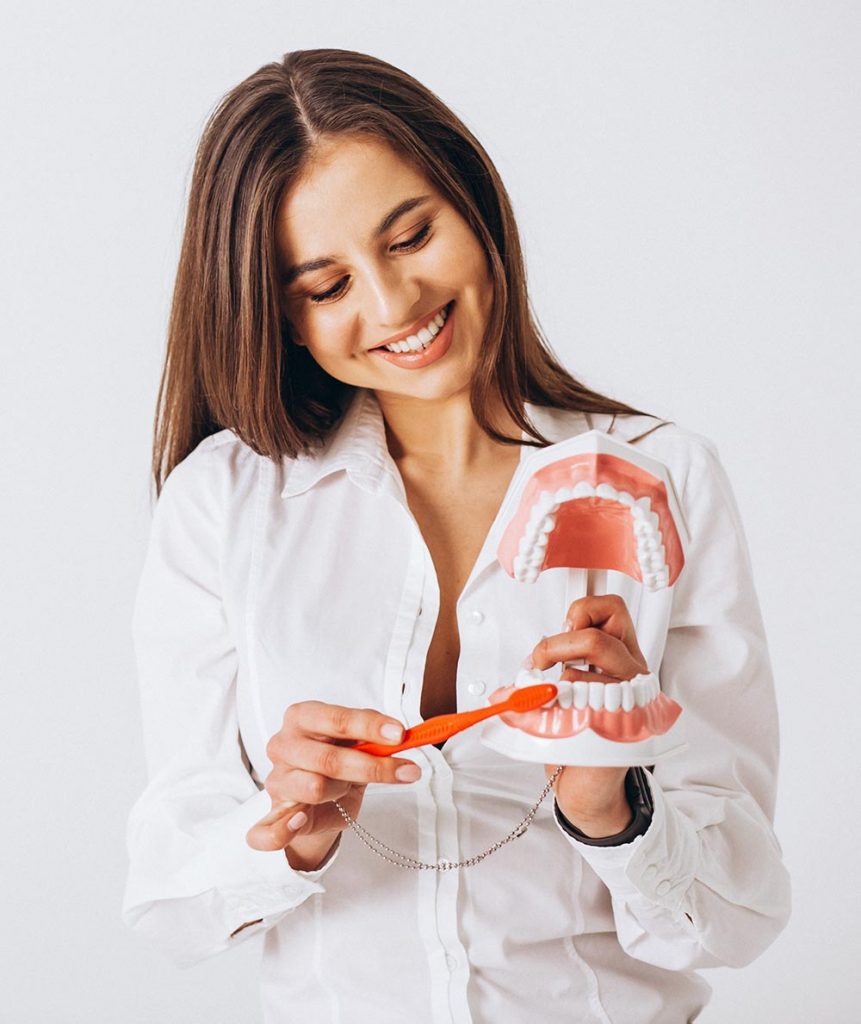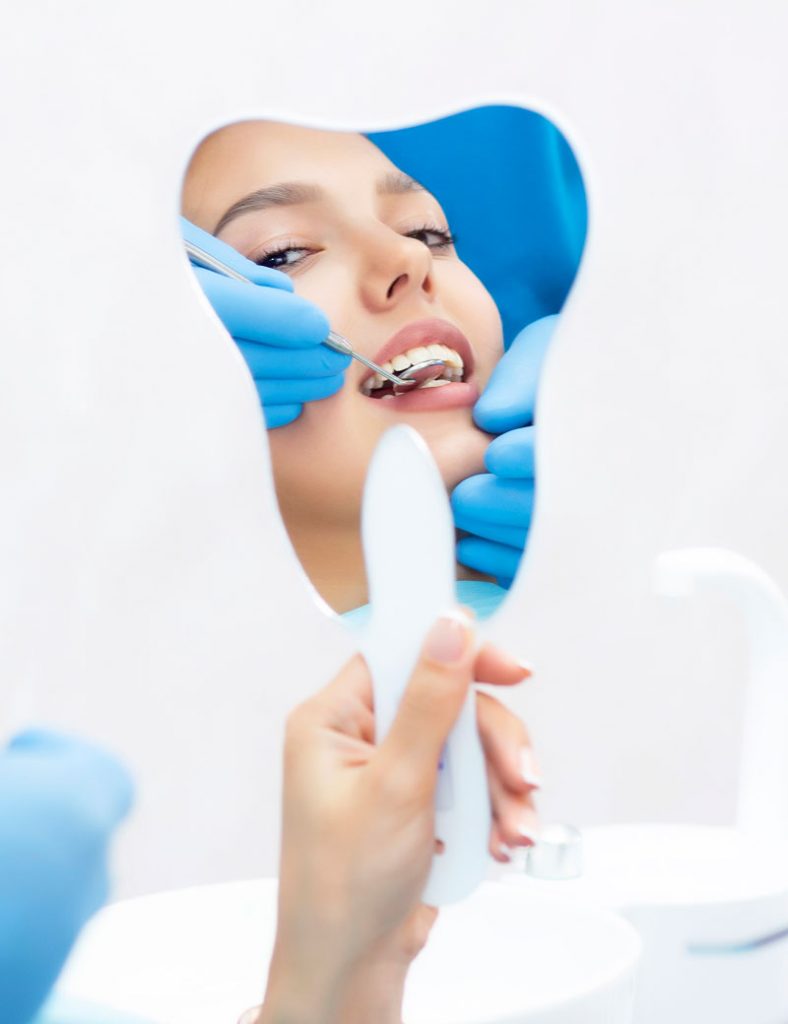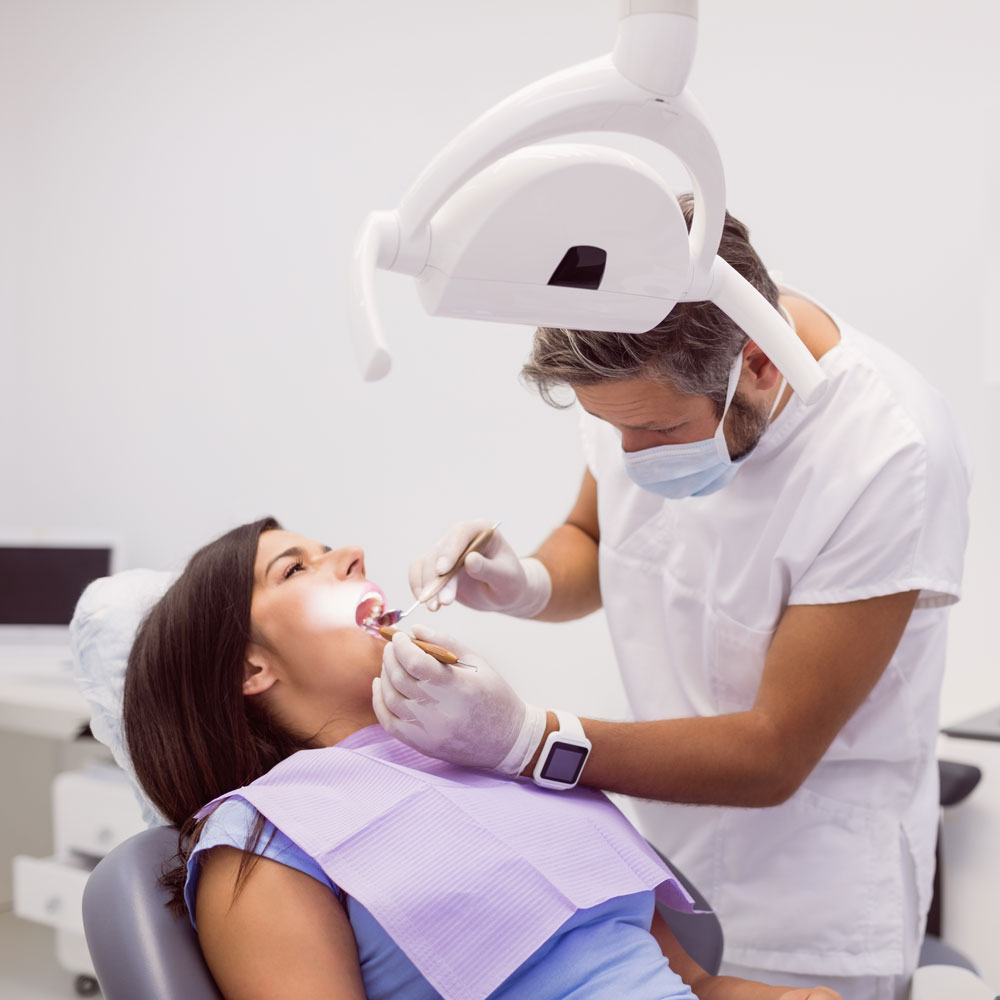
Emergency surgical tooth extraction appointment
Our outstanding dentists in London will always try to keep the tooth and do anything possible to avoid the need for surgical tooth extraction. However, in some instances, tooth removal becomes a necessity and should not be delayed. If you believe a surgical tooth removal may be needed, book an emergency appointment with us to consult our dentists and specialists and identify the best course of action for your case.

What is surgical tooth extraction?
Surgical tooth extractions, also known are transalveolar extractions, are an open method of tooth removal. In this technique, a dentist will make a small incision on the gums to elevate a flap. If deemed necessary, some bone might also be removed to provide clear access to the tooth structure.
Surgical tooth extractions at our clinic in London are opted for in a variety of tooth conditions like:
- Broken tooth – when a large portion of the tooth is missing, the remaining pieces may be difficult to grasp and remove with extraction forceps. In such cases, surgical extraction has to be performed to provide a clear vision and better access to the remaining tooth structure.
- Fragile or cracked tooth.
- Teeth with large cavities extended until the roots, till the gum line or even below it.
- In some cases, the crown portion of the tooth is lost, leaving just the root, which is embedded into the jawbone. In such cases, surgical extraction is necessary.
- Teeth with large, bulbous or curved roots.
- Impacted or partially erupted wisdom teeth also need to be removed via surgical extraction.
What to expect during a surgical tooth extraction?

When you schedule an appointment with us at our clinic in London, our board-certified dentists will carry out a complete dental examination. Apart from the clinical examination, they may also take some intraoral X-rays and sometimes, an extraoral X-ray such as an OPG may also be required.
After this, our dentist will determine and plan your surgical tooth extraction. First, they will numb the treatment area with local anaesthetics via an injection in your mouth to ensure you feel no sensation during the treatment. During the extraction, you will feel no pain, just some pressure. However, if you do experience any pain, inform our dentist right away so they can administer a numbing agent.
Our dental professionals understand the anxiety, which can come with tooth removal. If you are anxious and scared of dental procedures, all you need to do is inform our staff about your concerns, and we will take extra measures to make sure you are relaxed and calm during your surgical tooth extraction. Our clinic is equipped with intravenous anaesthesia, which puts you in deep sedation; this ensures that you will feel no discomfort during your surgery.

Once adequate sedation has been achieved, a small incision will be made over your gum line to expose the remaining tooth structure and the jawbone. In cases of an impacted tooth, some amount of bone is also removed to provide proper access to the tooth structure. In some cases, the tooth might have to be sectioned into pieces to ensure adequate removal and prevent injury to nearby nerves and blood vessels. Once proper access is gained, the tooth is elevated from its sockets and removed by specialised extractions forceps. Sometimes, our dentists may also suture the extraction wounds to fasten the healing process if necessary. After the extraction, you will be asked to bite down on the gauze for 30 minutes to create pressure and assist in forming a blood clot on the extraction site. It is normal to have a little bleeding from the extraction site for the next 24 hours, but in cases of heavy bleeding or bleeding, which does not stop, call us at our clinic right away.

How can you prepare for a surgical extraction?
Surgical extractions can take a long time and are often extensive. Therefore, we have prepared a list of some helpful tips to keep in mind before you come in for a surgical extraction at our clinic in London.
- Try and keep calm; take several long breaths. If you have any questions or doubts, talk to our highly skilled dentists and specialists.
- Make sure you have someone to accompany you to our dental clinic on the day of the extraction. Anaesthesia in any form can impair judgement, and it is not advisable to drive a car just after surgery as there is still some residual effects of sedation.
- You might receive intravenous sedation, ensure that your clothing is loose, and your arm can be exposed to administer the anaesthetic agent.
- Wear comfortable clothing.
- Do not eat and drink for eight hours before your appointment. If you are scheduled for a morning appointment, it is advisable not to consume anything after midnight or the night before.
- Do not smoke beforehand.
- Avoid alcohol.
- Please make sure you tell our dentist of any medical history; this includes any medications you are taking or any medical condition you might have like diabetes, hypertension, etc.
- Tell your dentist if you feel unwell on the day of your surgery, as it may have to be postponed in some cases.
Post-surgical care
- Take pain medications as prescribed by our dentist.
- Anti-inflammatory drugs significantly decrease pain post-extraction.
- Use an ice pack on your jaw to reduce the swelling for 10 mins on and 20 mins off.
- Eat soft and cold foods for the first few days.
- Avoid hot foods and liquids for the first 24 hours.
- Avoid alcohol in any form for the first 24 hours.
- Chew your food on the opposite side.
- Do not spit, rinse or drink through a straw as it can dislodge the blood clot from the extraction site, which can significantly delay healing and can lead to the formation of a dry socket.
- Make sure you brush and floss gently. It is crucial to maintain good oral hygiene to avoid any infections of the surgical site.
